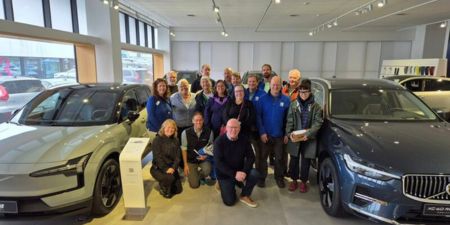
Today’s session at Reykjavik University, featured Dr. Juliet Newson, Director, and Jacob Kaminski, Program Manager, of the Iceland School of Energy, who discussed strategies with the CREATE team to develop Clean Energy and Electric Vehicle (EV) curriculum and instruction.
The Iceland School of Energy is known for its international student diversity, and is at the forefront of sustainable energy education. Dr. Newson and Kaminski addressed the demographic distribution for STEM fields, showing an impressive gender ratio of 60% male and 40% female, with more than ¾ of the students coming from abroad for the Iceland School of Energy. This diversity enriches the learning environment and brings various perspectives into the program.
One major challenge discussed was the integration of broader contexts such as environmental, political, economic, and ethical considerations into technical training. This holistic approach is vital for producing well-rounded graduates capable of addressing real-world issues. Furthermore, since the energy and transportation markets are so heavily influenced by policy and regulation, it is important that professionals in the field understand these influences. In this way, individuals can advocate for sound policy making, and also can make personal career choices and business decisions based on actions that society and government choose to pursue.
The CREATE team further emphasized the importance of industry collaboration to ensure the curriculum meets current market demands, especially in the rapidly evolving field of EVs.
Overall, this discussion underscored the global challenges and similarities in sustainable energy education, reinforcing the need for interdisciplinary integration and continuous adaptation to industry needs. The insights gained today are crucial for developing EV curriculum and instruction that prepares students for the future.
In the afternoon, CREATE headed to Brimborg Auto Imports and Distribution, a leading company in Iceland’s energy transition for EV road transport. We were hosted by CEO Egill Jóhannsson, who shared fascinating insights into Brimborg’s sustainability journey and their pivotal role in Iceland’s shift to electric vehicles (EVs). Brimborg has been a pioneer, importing the second EV to Iceland in 1981, and experimenting with vehicles running on hydrogen, ethanol, and methanol throughout the last 20 years.
More recently, Brimborg has become the nation’s leading importer and distributor of electric vehicles. Currently, 75% of the inventory on the Brimborg auto lots are electric cars, including vehicles from Volvo, Polestar, Peugeot, and Ford among others. Brimborg has further grown their business beyond light duty vehicles to also include electric powered heavy-duty trucks, off road and construction equipment, and electric motors for marine applications.
A highlight of our visit was learning about Brimborg’s import and deployment of advanced charging infrastructure. They have Iceland’s largest 600 kW charging station, designed for easy access and fast charging, capable of a 25 kWh charge in just 10-15 minutes. Brimborg was also the first in Iceland to install wall mounted 30 kW DC chargers, filling a gap between the conventional wall mounted level 2 AC chargers and pedestal mounted level 3 DC fast chargers. They are also exploring dynamic load balancing and battery electric storage systems to optimize grid usage, especially in rural areas where grid capacity is limited.
Egill emphasized the importance of corporate sustainability, discussing their efforts to avoid greenwashing and meet the EU Corporate Sustainability Reporting Standards. Brimborg’s diverse workforce and high recycling rates reflect their commitment to environmental and social responsibility. Egill stressed the importance of business leaders getting involved in public policy, underscoring the themes from the morning conversation. He recently served as a leader for the transportation trade association, helping to develop a roadmap for EV adoption with recommendations that were provided to the Icelandic parliament for consideration.
Egill’s enthusiasm and practical approach left the CREATE team confident that Brimborg will continue to drive innovation and serve as a leader to reach Iceland’s goal of becoming petrol-free by 2030.
Tomorrow the CREATE Team completes their journey with a tour of the Irafosstod Hydroelectric Power Station Site, and a visit to a sustainable farming operating powered by geothermal and hydropower.
Sign up for the CREATE Newsletter and stay updated on the latest information in Renewable Energy Education.
Copyright @ 2025 CREATE National Energy Center
This material is based upon work supported by the National Science Foundation under Grant #2201631. Any opinions, findings, and conclusions or recommendations expressed in this material are those of the author(s) and do not necessarily reflect the views of the National ScienceFoundation.